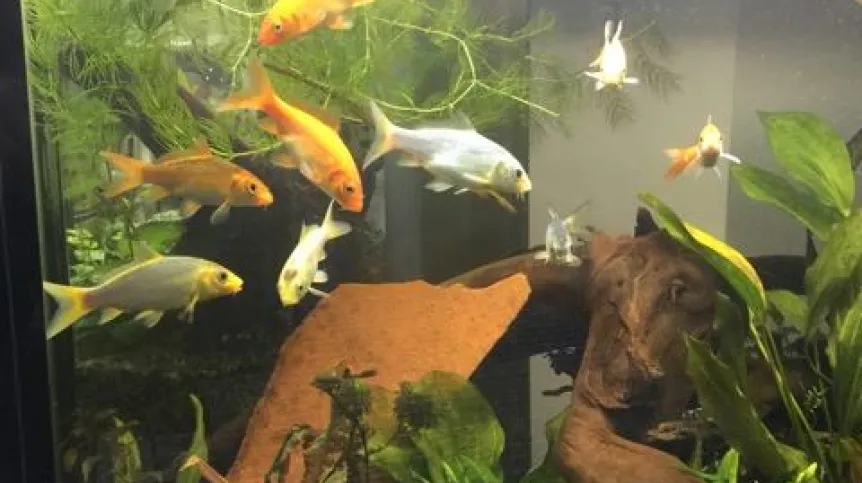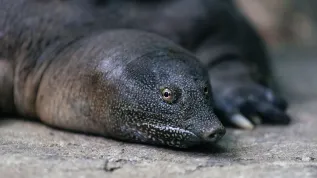
Habitats from five continents in aquariums will soon be on display in the Institute of Biology, University of Białystok. The habitats of the Amazon, the Congo River and Lake Tanganyika are already finished. The plans include an aquarium associated with Australia.
Biotope aquariums, with plants and animals typical for different parts of the world, are being built at the Institute of Biology on the new campus of the University of Białystok. They will be a part of a huge, multi-level structure. Installed aquariums have a volume of 150 to 500 liters.
"Nineteen of them will be flower windows with vegetation with interesting adaptation to different environmental conditions. Most are already being set up, as are some of the classic aquariums and aquaterrariums. The aquarium wall has three land and water tanks, two aquariums with amphibians living in the aquatic environment, one aquarium for amphibious turtles. An interesting part here is the tank with Atlantic mudskippers - fish that spend most of the day on land" - said Anna Koszewnik of the Institute of Biology, University of Białystok.
Now biologists want to create biotope aquariums emulate a natural environment, including water conditions, the hardscape, flora and fauna species.
"Our goal is to create fragments of habitats from five continents. Today, we can boast of a very specific when it comes to living conditions, habitat +Black Water+ of Amazon in South America, the African habitat +Congo+ with a strong river current, habitat of African Lake Tanganyika and Asian biotope with colourful varieties of barbs. We are preparing a tank imitating a cave, which will be populated with blind cavefish. In the future we would like to set up a biotope tank associated with the Australian continent and a tank imitating an European lake" - said Anna Koszewnik.
In the preparation of the aquariums, biologists from the University of Białystok have the support of hobbyists from local aquarium forum AkwariumOnline.pl. "These people have years of experience as breeders - aquarists, which we lacked. Each of them is an expert in a particular biotope, and they are willing to lend the knowledge and experience gained over the years. Thanks to them, our work gained momentum" - added the aquarium caretaker.
Aquarists work on aquariums in their free time. But as they say - they also benefit from the cooperation. "Most of us have been passionate about breeding aquarium fish for many years, we have long passed the stage of so-called general tanks and focus on selected biotopes. None of us has the possibility, financially or in terms of premises, to fully develop in this regard. The possibilities offered by infrastructure of the +aquarium skyscraper+ at the Institute of Biology, have been out of our reach. Therefore, we are enthusiastic about the opportunity to participate in this project" - explained Andrzej Nieborak, administrator of the National Aquarium Forum AkwariumOnline.pl.
Work on the creation of biotope aquariums will be continue along with fundraising for the next tanks - primarily for the purchase of animals and plants, also for flower windows. Sponsors can be of help, the Institute of Biology invites them to cooperate.
PAP - Science and Scholarship in Poland
ekr/ agt/ zan/
tr. RL













